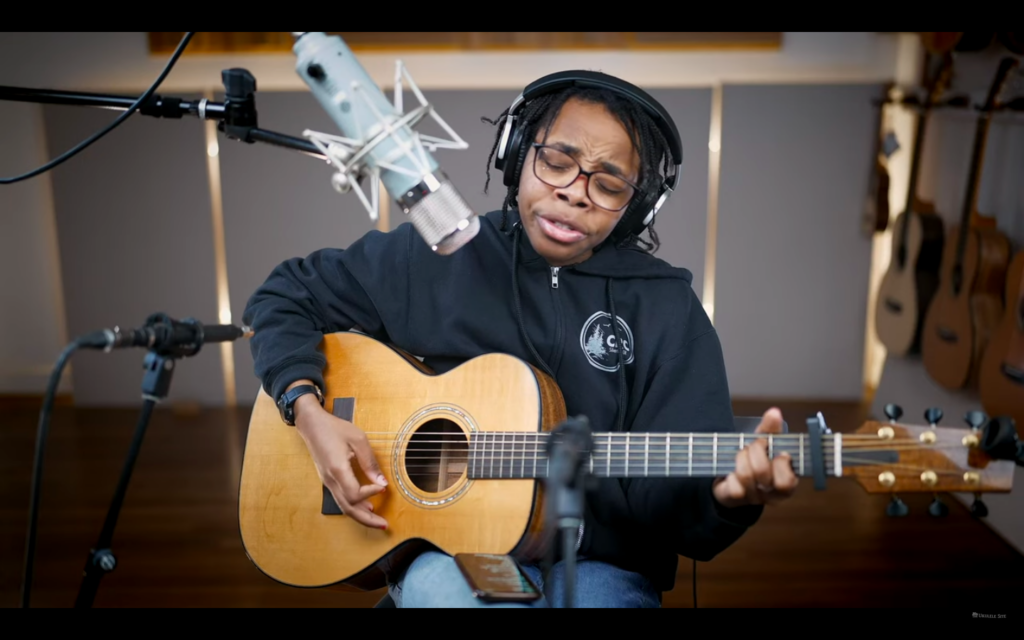Best song I’ve ever heard about domestic violence: “Johnny’s Girl” by Spirit Artis. The music is not complex: mostly Artis’s expressive voice, with her understated guitar accompaniment, and a touch of overdubbed harmony singing. The song is powerful enough that it doesn’t need any more than that.
In a podcast, Artis said this is a song about toxic relationships as viewed by a third party. She had seen relationships where one partner subsumes themselves in the dominant partner, so that person isn’t even known by their own name; they’re just known as “Johnny’s girl,” or “Gwyneth’s boy,” or whatever. I’ve done a little bit of work with people in domestic violence situations, and Artis’s lyrics get at some uncomfortable truths:
“Johnny’s girl, she’s lost herself again,
She said, ‘He’s different, you don’t know him like I do,’
But Johnny-boy’s abusing on our friend,
She said, ‘He’ll change, just give him time, this bruise will fade’….”
In the same podcast, Artis added that she sang this song to someone she knew who needed to hear it, and that person got out of the toxic relationship that they were in. So I’m linking to this song on my blog — in case there’s someone else out there who needs to hear it.

